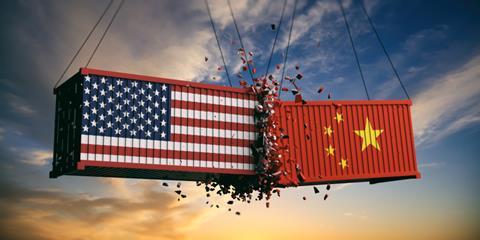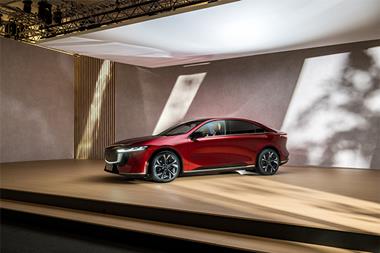The US government is increasing import duties on electric vehicles (EVs) by more than 100% with an eye on controlling imports from China. There are also tariff increases on lithium batteries, semiconductors, critical minerals, and steel and aluminium, among other products, to be phased in over the next two years as part of the review of Section 301 of the US Trade Act of 1974. The measures will affect $18 billion-worth of imports from China.

Carmakers and suppliers in the US are reviewing the potential impact on the supply chain.
At a speech given at the White House on May 14 President Biden said: “American workers can out-work and out-compete anyone as long as the competition is fair, but for too long it hasn’t been fair. We’re not going to let China flood our market.”
The president said that the Chinese government had subsidised a range of industries for years, including steel and aluminium, semiconductors, EVs and solar panels, which he described as the industries of the future.
“China heavily subsidised all these products, pushing Chinese companies to produce far more than the rest of the world can absorb and then dumping the excess products onto the market at unfairly low prices, driving other manufacturers around the world out of business,” said Biden.
In response, China’s Ministry of Commerce said in a statement: “China will take resolute measures to safeguard its own rights and interests. The US should immediately correct its wrong actions and cancel the additional tariff measures against China.”
In addition, according to a Reuters report, on May 17 Brian Gu, co-president of Chinese EV maker Xpeng, said the tariffs would be detrimental to achieving carbon neutrality and green energy transition.
Battery EVs and parts
The tariff increase on battery EVs (BEVs) moves from 25% to 100%, bringing total duties to 102.5%. However, BEV imports from China are very small. Approximately 110,000 vehicles under nine nameplates were imported to the US from China between 2023-2024, according to the Motor and Equipment Manufacturers Association (Mema), also known as The Vehicle Suppliers Association, with only a small number of EVs factored into that volume.
The tariffs on lithium batteries for EVs and other battery parts go up from 7.5% to 25%. Some critical minerals will have their tariffs raised from 0-25%. Semiconductor tariffs are doubled to 50% from 2025.
“I’m determined that the future of the electric vehicles will be made in America by union workers,” said Biden. “And we’ll do it by following international trade laws.”
Pivotal policy
The measures have support from representative bodies for the automotive sector in the US. Mema’s executive vice-president of government affairs Ann Wilson, said the association recognised the importance of Biden’s update of the Section 301 tariffs.
“We are closely examining the implications of the increased tariffs on batteries, EVs and semiconductors to ensure they align with our commitment to enhancing the competitiveness of US manufacturing and supporting the transition towards increased EV production and distribution,” she said.
Wilson went on to say that the adjustments to tariffs on battery components and critical minerals are particularly pivotal and are expected to reduce dependency on foreign sources, especially from regions with volatile trade relations.
“For Mema members, this could mean challenging access to critical raw materials needed for battery production and other EV components, with the goal of fostering greater localisation of the supply chain.”
That strengthening of local supply will support US jobs and minimise supply disruption, according to Wilson, and will accelerate the US automotive industry’s capabilities in manufacturing and innovation in the EV sector.
Mema is working with policymakers to ensure the measures taken to protect local supply effectively contribute to building a strong domestic supply chain that supports its 1,000+ members across the automotive supply chain and the broader US manufacturing base.

























![Global[1]](https://d3n5uof8vony13.cloudfront.net/Pictures/web/a/d/s/global1_726550.svgz)













No comments yet